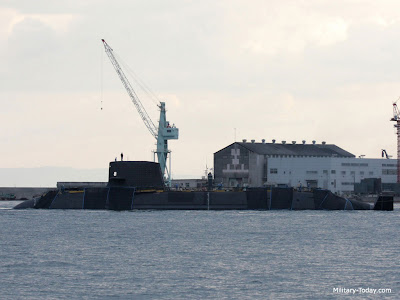@
Viet this is for you
Gillard wants South China Sea code of conduct - ABC News (Australian Broadcasting Corporation)
Gillard wants South China Sea code of conduct
Prime Minister Julia Gillard says Australia wants to see a code of conduct for resolving disputes over the South China Sea.
Territorial disputes over the South China Sea have overshadowed the East Asia Summit in Cambodia's capital Phnom Penh, where Ms Gillard is meeting regional leaders.
She has already spoken to Japan's prime minister, Yoshihiko Noda, and China's leader, Wen Jiabao.
China has been reluctant to commit to starting formal talks on a legally binding code of conduct over the sea.
Ms Gillard says Australia does not take sides in the territorial disputes but argues they have to be resolved peacefully.
"We believe it is in everybody's interest that issues in the South China Sea are managed in a peaceful way in accordance with international law; that's Australia's perspective," she said.
"We do believe that a code of conduct would assist with making sure that any issues in the South China Sea, any conduct there, could be managed in accordance with the code, that is, that the rules and manner of responses would be predictable and knowable.
"That's Australia's position. It's been one of long standing and it's one we'll continue to argue for."
Ms Gillard says it is important to Australia that the issue is resolved.
"We are talking about an area of the world that our shipping needs to go through to take our goods to the world," she said.
During her meeting with Mr Wen, Ms Gillard presented the Chinese leader with a photo of former Labor prime minister Gough Whitlam meeting China's chairman Mao Zedong in 1973.
The gift, signed by Mr Whitlam, is to mark the 40th anniversary of diplomatic relations between the two nations.
It is likely to be the last meeting between Ms Gillard and Mr Wen before China's new administration comes in next year.
Free trade
Audio: Listen to Louise Yaxley's report (PM)
Ms Gillard also says Australia will take any opportunity to push for free trade in the region.
United States president Barack Obama this morning launched the Trans-Pacific Partnership, which involves Canada, Mexico as well as countries on the western side of the Pacific.
Ms Gillard says Mr Obama is being ambitious about its scope and he wants the deal in place by October next year.
Trade Minister Craig Emerson, who is also in Phnom Penh, said Mr Obama seemed set to use his second term in office to push for the deal.
"The president of the United States was very enthusiastic and highly ambitious for the Trans-Pacific Partnership," he said.
"As a second-term president of the United States, it is clear that he wants to get this deal done and, indeed, he wants it to be a high-quality, truly liberalising agreement.
"The importance of that is that it creates more jobs and better jobs in the region and beyond."
Australia is also involved in another push to remove regional trade barriers.
Ms Gillard says Australia is keen to be a part of any group that can reduce tariffs and smash trade barriers.
"It makes sense to be involved in both and to be maximising our efforts in both," she said.
Malaria
During a speech at the summit, Ms Gillard promised $1 million for more work to combat malaria in the region.
She also emphasised that Australia had recently promised $100 million over four years to help cut death rates.
The leaders at the summit will make a declaration committing to a regional response to the growing threat of drug-resistant malaria.
Ms Gillard says Australia is supporting a regional alliance to fight the problem.
"Malaria is a disease which disproportionately affects the poor," she said.
"In fact, in 2010 it was estimated 42,000 people in our region of the world died from malaria. Disturbingly, we are seeing the emergence of drug-resistant strains of malaria."
Ms Gillard has also promised $50 million to crack down on human trafficking.
The money will go towards helping investigators and prosecutors catch people who are exploiting others and force them into work or prostitution.
Cambodia is one of seven South East Asian nations to benefit from the funding.
"Trafficking in persons is a dreadful evil where people are forced into exploitative labour situations, and tragically, young people in particular are forced into prostitution," Ms Gillard said.
"The program I am announcing today will enable us to work with a number of our neighbours to reduce trafficking in people."
Topics:world-politics, foreign-affairs, international-aid-and-trade, federal-government, cambodia, australia, japan, china
First posted Tue Nov 20, 2012 8:47pm AEDT
http://www.radioaustralia.net.au/international/radio/program/connect-asia/australia-should-stay-out-of-south-china-sea-dispute-says-carr/987932
Australia should stay out of South China Sea dispute, says Carr
Australian Foreign Minister Bob Carr has rebuffed suggestions by prominent Australian think tank the Lowy Institute that Australia should try to broker a solution to the South China Sea dispute.
.
Australia should stay out of South China Sea dispute, says Carr (Credit: ABC)
.
Correspondent: Stephanie March
Speaker: Bob Carr, Australian Foreign Minister
MARCH: Bob Carr has been Australia's Foreign Minister for four months and is due to give a speech later today about the direction of Australia's foreign policy and overseas development assistance. He will focus on Australia's engagement in multi-lateral forums
CARR: I will be talking about Australia's commitment to the networks and our role in the UN, for example, or our role trying to solve problems with a couple of partners.
MARCH: But one problem he doesn't see Australia playing a lead role in solving is the dispute in the South China Sea. A prominent Australian think tank has suggested Canberra should try to broker a solution to the impasse involving China and a number of ASEAN nations but Bob Carr says that's not an option.
CARR: I don't think it is in Australia's interest to take on for itself a brokering role in territorial disputes in the South China Sea. I don't think that is remotely in our interest, I think we should adhere to the policy we have got of not supporting any one of the nations making competing territorial claims and reminding them all that we want it settled, because we have a stake in it - 60 percent of our trade goes through the South China Sea
MARCH: The dispute does seem to be at a critical juncture, what would you like to see happen?
CARR: We think a code of conduct is very useful and that is why we have taken a real interest in the work being done in ASEAN towards a set of ASEAN principals on the disputes registered in the South China Sea. Australia doesn't take a position with the competing territorial claims and I think that position is understood.
MARCH: In his speech later today Bob Carr will say that Australia's is already playing a key role in multi-lateral forums .
He says that role was diminished under the previous government... and that they need to be revived to help solve contemporary problems.
CARR: There are problems in the world that are only going to be resolved by mulit-lateralism, disarmament, whether it is implementing the nuclear non proliferation treaty or what we are attempting in the arms trade treaty I am very proud of Australian's sponsor ship of these are problems that can only be tackled by aust working with other nations.
MARCH: Is there anything australia can bring to the table that other nations cant?
CARR: I am fond of saying in these fora that Australia is not Europe or Australia is not america we are here in the Indian ocean in the Pacific, we have got our own perspective, we have a lot that interests the world, we have a working multicultural society, a keen interest in land management and environmental issues, the health of the oceans and a record of working hard for security and peace, a big commitment to Afghanistan for example and one of the world's best targeted and most generous aid budgets. This is Australia as a creative middle power and we are only going to achieve the things we by through multi lateral engagement
He insists Australia's move to spread itself further across the globe in these multi-lateral engagements... won't lead to resources being spread too thin.







 that raised once again the possibility of Japan transferring the technology underpinning the prized Soryu submarine to Australia. The article did not offer much additional detail about how the process from here is likely to unfold, although it did frame the technology transfer as part of a supposedly mutual desire to balance against Chinese naval activities. It nevertheless suggests that defense officials are still considering the plan and that the chances are good that something will come out of the process notwithstanding any domestic or international backlash. The main issue for the Japanese side likely revolves what level of information and access to provide to the Royal Australian Navy.
that raised once again the possibility of Japan transferring the technology underpinning the prized Soryu submarine to Australia. The article did not offer much additional detail about how the process from here is likely to unfold, although it did frame the technology transfer as part of a supposedly mutual desire to balance against Chinese naval activities. It nevertheless suggests that defense officials are still considering the plan and that the chances are good that something will come out of the process notwithstanding any domestic or international backlash. The main issue for the Japanese side likely revolves what level of information and access to provide to the Royal Australian Navy.

